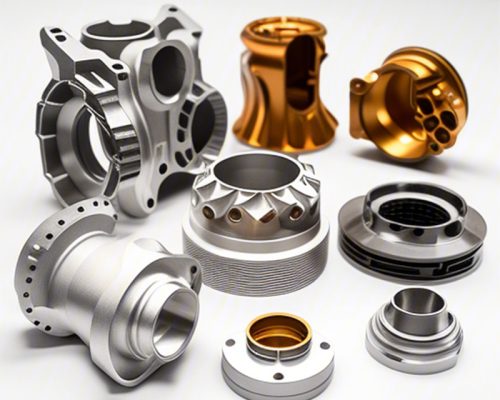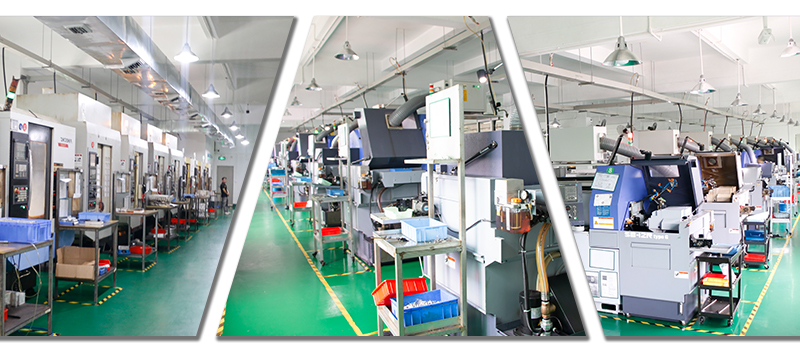If you’re looking into CNC machining for your next project, you might have come across two popular types of aluminum alloys—6061 and 5052. Both are widely used in industries like aerospace, automotive, and manufacturing, but one key factor that can influence your decision is corrosion resistance.
So, what’s the difference in terms of corrosion resistance between 6061 and 5052 aluminum alloys, and which one is better suited for your specific needs? That’s exactly what I’ll dive into in this article. I’ll break down the differences, help you understand which material works best for certain environments, and share some tips on how to make the right choice for your CNC machining project.
What is CNC Machining and Why Does Material Matter?
Before we dive into the specifics of 6061 and 5052 aluminum, let’s briefly talk about CNC machining and why the material you choose matters. CNC (Computer Numerical Control) machining is a precise method used to cut, mill, and shape materials using computer-controlled machines. Whether you’re working on intricate parts or large production runs, CNC machining provides high precision and repeatability, which is why it’s a preferred method in many industries.
Choosing the right material is crucial for ensuring that your final product meets the necessary specifications, especially when it comes to corrosion resistance. After all, materials exposed to harsh environments or weather conditions must be able to withstand corrosion over time.
Understanding Corrosion Resistance
Corrosion resistance refers to a material’s ability to resist degradation due to exposure to moisture, chemicals, and other harsh elements. In industries like aerospace, marine, and construction, where components are regularly exposed to the elements, choosing a corrosion-resistant material is a top priority.
Aluminum alloys are often chosen for CNC machining because they are lightweight, strong, and resistant to corrosion. However, not all aluminum alloys offer the same level of protection. This brings us to the comparison between 6061 aluminum and 5052 aluminum.
6061 Aluminum: A Versatile All-Purpose Alloy
Let’s start with 6061 aluminum, which is one of the most commonly used alloys in CNC machining. This alloy contains magnesium and silicon, which provide a good balance of strength, weldability, and corrosion resistance. It’s an all-purpose alloy that’s used in everything from structural components to machine parts.
Corrosion Resistance of 6061 Aluminum
When it comes to corrosion resistance, 6061 aluminum is considered moderately resistant to corrosion, particularly in atmospheric conditions. It holds up well in environments where exposure to moisture and salt is minimal, making it a solid choice for applications that are not constantly exposed to water or extreme weather.
However, 6061 aluminum may struggle in more aggressive environments. For instance, exposure to saltwater or acidic conditions might lead to some corrosion over time, especially if the material is not properly treated or coated. That being said, 6061 can be anodized (a process that enhances its natural oxide layer) to increase its resistance to corrosion and wear.
5052 Aluminum: The Corrosion-Resistant Champion
Next up is 5052 aluminum, another popular alloy in CNC machining that’s known for its exceptional corrosion resistance, especially in marine environments. Unlike 6061, 5052 aluminum contains a higher percentage of magnesium, which significantly boosts its ability to resist corrosion from seawater, salt, and other harsh conditions.
Corrosion Resistance of 5052 Aluminum
5052 aluminum is often called the most corrosion-resistant aluminum alloy, especially when it comes to exposure to saltwater and other chemicals. This makes it a favorite for marine, offshore, and other industrial applications where resistance to harsh chemicals is paramount.
For applications exposed to extreme weather, water, or corrosive substances, 5052 aluminum is the top choice due to its superior protection against pitting and stress corrosion cracking. It’s especially ideal for parts in marine vessels, fuel tanks, and chemical storage equipment.
6061 vs. 5052: Which One Should You Choose for CNC Machining?
Now that we’ve covered the basic properties of each alloy, let’s compare their corrosion resistance more directly. Which one is the best option for your CNC machining project?
1. Corrosion Resistance in Marine Environments
If you’re working with parts that will be exposed to seawater or high humidity, 5052 aluminum is the clear winner. Its ability to resist corrosion in salty or wet environments makes it ideal for applications like boat hulls, marine equipment, and offshore structures.
On the other hand, 6061 aluminum is more suited for environments where the material is exposed to moisture but not necessarily saltwater. While it can still handle corrosion in standard atmospheric conditions, it’s not as robust when exposed to more aggressive environments.
2. Cost Considerations
In terms of cost, 6061 aluminum is typically less expensive than 5052 aluminum, due to the differences in material composition and manufacturing processes. If you are working with a large batch or budget-sensitive project where corrosion resistance isn’t the highest priority, 6061 aluminum could be a more cost-effective choice.
3. Weldability and Strength
Both alloys are highly weldable and strong, but 6061 aluminum is often preferred when strength and structural integrity are critical. This makes it a great choice for aerospace, automotive, and construction applications.
In contrast, while 5052 aluminum is slightly less strong than 6061, it’s still a great option for applications that don’t require the highest strength but need extraordinary corrosion resistance.
4. Anodizing and Surface Treatment
Both alloys can be anodized to improve corrosion resistance, though 5052 aluminum already has superior protection naturally. 6061 may require additional treatment, such as anodizing, to achieve the level of protection that 5052 offers in more aggressive environments.
Final Thoughts: Choosing the Right Aluminum for CNC Machining
In the world of CNC machining, selecting the right material for your project can make or break its performance. When it comes to corrosion resistance, 5052 aluminum is the undisputed champion for environments that demand protection against moisture, chemicals, and salt. However, if you’re working in less harsh conditions and are looking for a more affordable, versatile alloy, 6061 aluminum is a solid choice.
At YL Machining, we specialize in both 6061 and 5052 aluminum machining, so if you’re unsure which alloy to go with, we’re happy to help you make the right choice based on your specific needs. Whether you need durability, strength, or exceptional corrosion resistance, understanding the material properties can save you time, money, and frustration.
What type of project are you working on? Do you think 6061 or 5052 is the better choice for your needs? Let’s discuss how we can help you achieve the perfect result!



